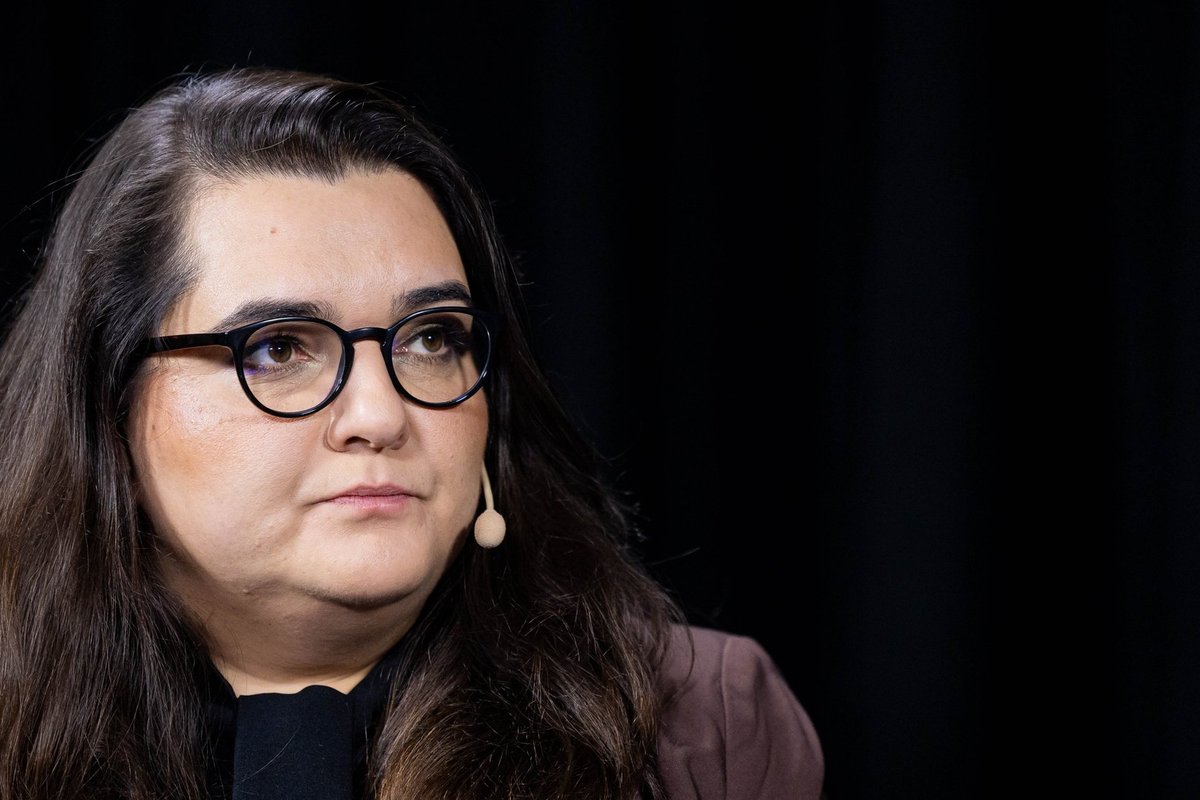Saturday, May 18, 1968. The Cannes festival is going on with apparent normalcy, while a few kilometers away students are burning containers and demonstrating against a system that offers them no alternative. The cinema remained numb, looking the other way, while the new generations demanded to blow everything up. The show had to go on, but Jean-Luc Godard, who died this Tuesday at the age of 91, accompanied by Nouvelle Vague staff, didn’t think so. That same morning, the president of the jury, Roman Polanski, was called and told that Cannes should show support for the demonstrations. They ignored them.
After a few hours, the image will remain for posterity. Godard, Truffaut, Carlos Saura and Geraldine Chaplin hung from the curtain of the Palace of Festivals to stop the screening. mint frappe The director is Carlos Saura himself, who did not hesitate to support the cancellation of the competition, which could mean his first Palme d’Or festival. In front of everyone, including the news cameras, Godard delivered the lapidary phrase: “We talk about solidarity with students and workers, and you talk about close-ups and surveillance footage. You are idiots!”.
A phrase that perfectly defines the filmmaker’s political commitment. A political commitment that was forming in him and that he gradually adapted to as he became acquainted with the cultural elite of France. No one thought that little Jean-Luc, born in Switzerland to a Protestant bourgeois family, the son of doctors and the grandson of bankers, would revolutionize the established norms of sophisticated cinema of the 1960s and end up making a political film with a Maoist message.
Many considered his earlier films to be mere entertainment, the aesthetic whims of a bourgeois playing the artist. saw At the end of the escape As a twist on the “noir” that so inspired Godard and his companions. They did not understand that what Godard was proposing was a change in the cinema of the time. It was 1960 and Hollywood had set the standard. Cinema was exactly as they said, marked by an academicism that did not allow to explore all its possibilities. Truffaut, Varda, Rennes, Godard and company said no, that cinema could be as free as they wanted.
Godard’s highly political messages would come later, but nothing was more anti-establishment than challenging the US and all its machinery. Godard has always been hated by Hollywood, in fact, he didn’t even go to accept an honorary Oscar in 2010. There was a clear reason for his rejection of Hollywood, he was the visible head of imperialism, imposing a unique way of doing things. . “Imperialism is a group of people who want to force others to make films the way they want,” he said in the spring of 1968 in the United States, at a meeting with university students brought together by the legendary film director’s granddaughter, Claire Clouseau. He would later publish Sight and Sound.
A statement that made it clear that politics were already present in his films before this curtain was hung. Don’t wait for the obvious La Chinoise (1967). His mantras have been clear since he said in 1959 that “shooting surveillance is a moral question.” If a single camera movement responded to an ethical rather than an aesthetic decision, film was always a political issue. Statement of Author’s Intent.
His second film little soldier (1963), banned by the French censors for daring to talk about the conflict with Algeria when it was at its hottest. In Carabinieri (1963) again denounced the injustice of war through a fictitious conflict in which one travels from an idealization of young people who would clearly accept an anti-war message; even inside disgust (1963), one of the best “cinema-in-a-cinema” films, was gifted to American producers who wanted to control the directors. All this destroyed the established norms of cinema at that time.
Godard never hid his origin in a rich family. “I was a bourgeois film director, then a progressive film director, and then I was no longer a film director, just a film worker. I ran away from a bourgeois family to enter show business. And then I discovered that there was show business. A bourgeois family bigger than me. It was more difficult to try to escape from a show business family than from my parents. “, he said in the book. Jean-Luc Godard in Jean-Luc Godard. Think between the pictures (intermediate publisher).
The bourgeoisie of “show business” undermined him in every film, although his communist and more specifically Maoist leanings began after his breakup with Anna Karina and when he began an affair with Anna Vyazemsky in 1967, a student who was 17 years old. time and that he was in the midst of all the student movements that would explode a year later. relationship that will be described bad mood (Michelle Hazanavicius, 2017).
1967 saw the premiere of two of his most prominent activist works. weekendCritically assesses the alienation of the bourgeois class, to which he seems to have belonged, and Chinese, The Communist Manifesto clearly tells the story of a group of student activists in France in the moments before May 68, with an ironic and crude touch. A group of young people talking about the Vietnam War or the tension between Soviet Russia and reading Maoist texts. They want to end the system, with capitalism, but their stance on taking away guns divides them.
“La Chinoise It is mainly about French youth. For three or four years I wanted to make a film about a specific type of youth, students, young people of knowledge. Gradually, events in China became important, and the Cultural Revolution was the spark that ignited La Chinoise. So it’s also about communist youth,” Godard would say about his own film.
“You had a preconceived notion of what a political film should be,” Godard told American students in 1968. “Your difficulties stem from your false notion that the people on the screen are made of flesh and blood, and that what you see. Shadows and you scold these shadows for not being alive. It’s not what’s on the screen that’s alive, but what’s between you and the screen,” he stated, which is political cinema for him.
The information that Jean-Luc Godard died not of illness but because he was “exhausted” because he so wanted to commit suicide is the ultimate sign that the personal is political and that the filmmaker was not just tracking the moral issue.
Source: El Diario













